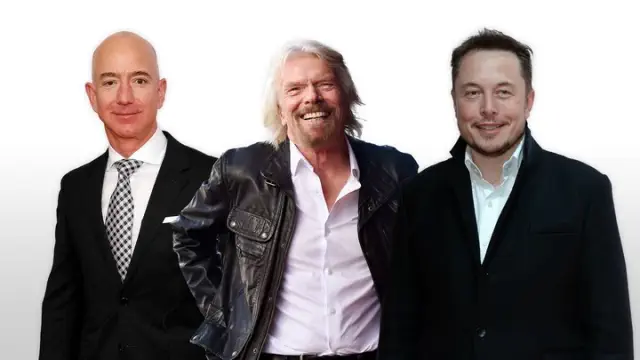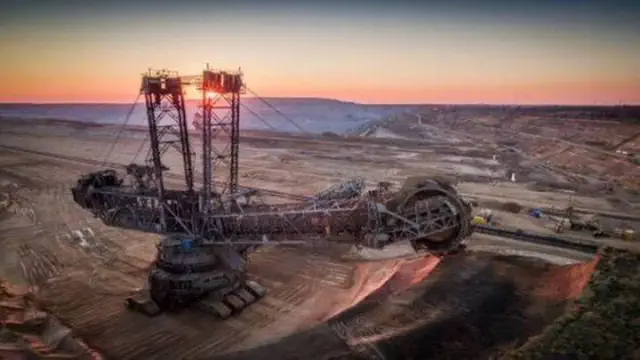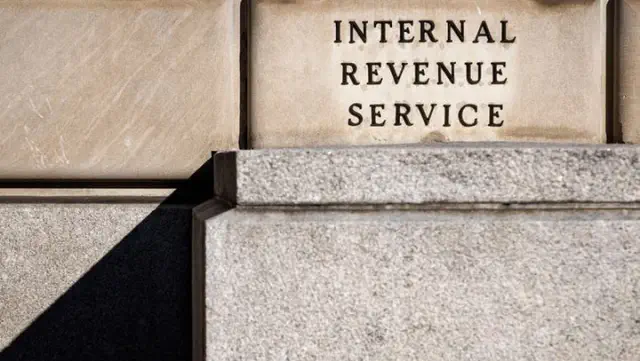Blue Origin's New Glenn rocket is scheduled to launch from Cape Canaveral on Monday. What is the current status in the competition among billionaires for dominance in space exploration?
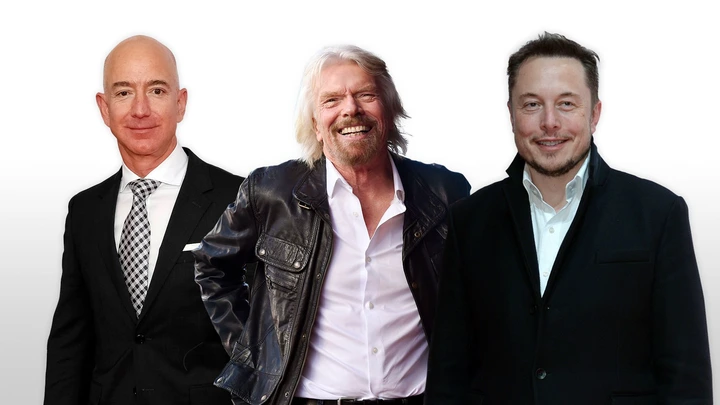
View pictures in App save up to 80% data.
Jeff Bezos's Blue Origin is preparing for the first launch of its new space rocket this coming Monday, marking a significant milestone that could intensify the competition among billionaires in the space exploration sector.
The New Glenn rocket is set to launch from Cape Canaveral, marking the culmination of a multi-billion dollar project that has spanned over ten years. This mission could pave the way for Amazon's satellite constellation initiative and potentially challenge Elon Musk's dominance in the market.
Mr Musk's SpaceX has dominated the scene for many years but both Mr Bezos and Virgin Galactic founder Sir Richard Branson have designs on outer space... and the wealth tied up in its exploration.
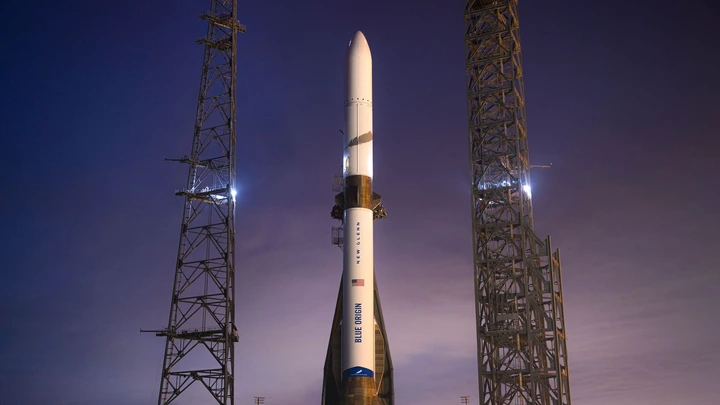
View pictures in App save up to 80% data.
Jeff Bezos and his company Blue Origin
"Since I was just five years old, I've had a dream of exploring outer space," Mr. Bezos remarked before embarking on his journey to the brink of space in 2021.
He established the Blue Origin initiative with the goal of enabling "millions of individuals to work and reside in space."
For several years, it has successfully launched and landed its reusable New Shepard rocket at the edge of Earth's atmosphere, yet it has never placed anything into orbit. However, that may change this coming Monday.
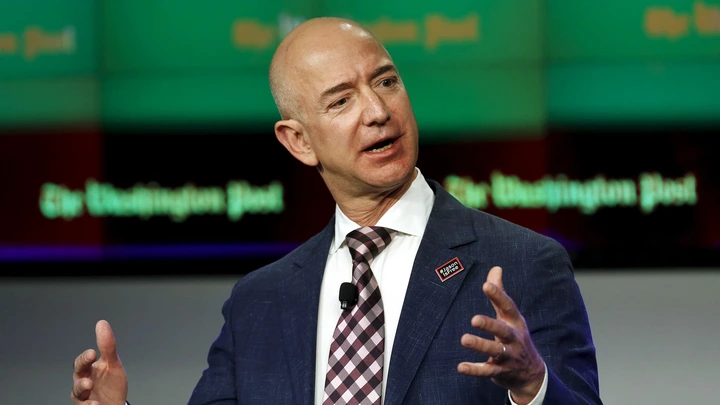
Blue Origin aims for its New Glenn rocket to rival SpaceX's Falcon 9, which currently holds the title of the most frequently launched rocket in the world.
In comparison to Mr. Musk's Falcon 9, the New Glenn boasts approximately double the power and features a payload bay diameter that is twice as wide, allowing it to accommodate larger groups of satellites.
The forthcoming launch is a crucial certification flight mandated by the US Space Force, which is necessary for New Glenn to transport national security payloads in connection with the multi-billion dollar government contracts that Blue Origin aims to secure.
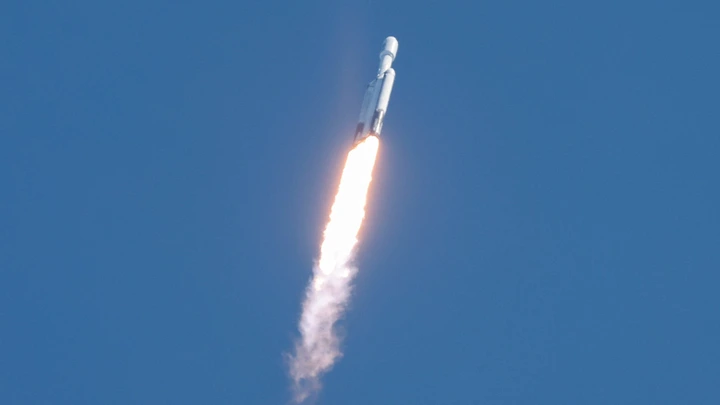
View pictures in App save up to 80% data.
Elon Musk and SpaceX are at the forefront of space exploration and technology. Founded by Musk in 2002, SpaceX aims to reduce space transportation costs and enable the colonization of Mars. The company has achieved significant milestones, including the first privately-funded spacecraft to reach orbit and the development of the reusable Falcon rockets, which have revolutionized the industry. Musk's vision extends beyond Earth, as he envisions a future where humanity becomes a multi-planetary species.
Elon Musk once joked, "I wish to die on Mars, but not upon crashing."
The ally of Donald Trump, often seen sporting an "Occupy Mars" t-shirt, has maintained a significant presence in the private space sector with his company SpaceX.
Back in 2016, Mr Musk outlined his vision of building a colony on Mars "in our lifetimes" - with the first rocket propelling humans to the Red Planet by 2025, though this deadline does not appear likely to be met.
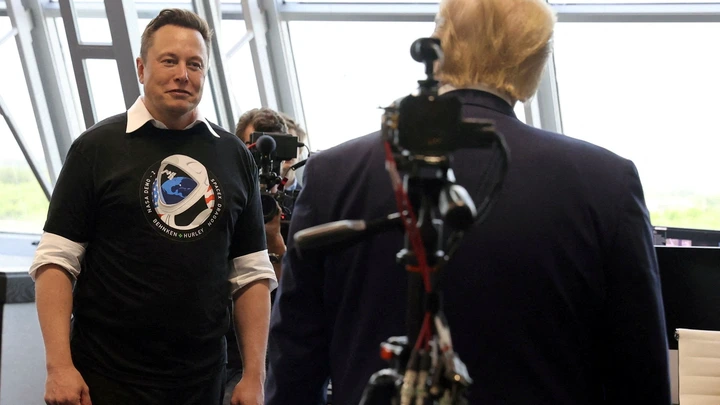
View pictures in App save up to 80% data.
For many years the company used an image of the Martian surface being terraformed (turned Earth-like) in its promotional material. However, a NASA-sponsored study published in 2018 dismissed these plans as impossible with the technology available then.
SpaceX has undertaken missions that encompass contracts with the US government as well as the deployment of its Starlink satellite internet system.
Although Mr. Bezos' New Glenn rocket boasts greater power compared to the successful Falcon 9, SpaceX's upcoming Starship, which is a fully reusable rocket system in the works, is expected to be even more powerful.
Mr. Musk considers Starship essential for broadening Starlink's presence in space. The upcoming test flight, scheduled for later this month, will include the deployment of simulated satellites.
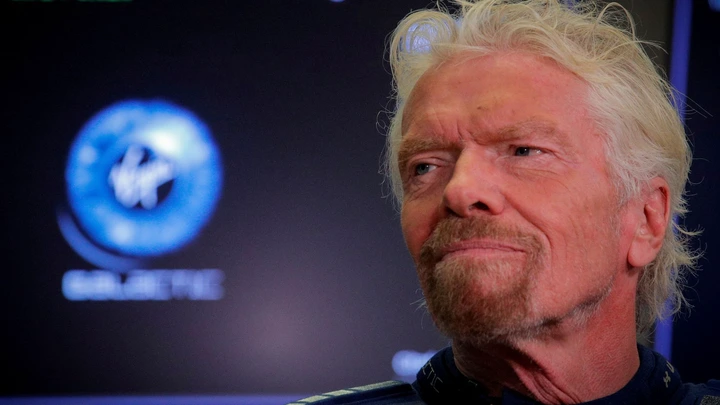
View pictures in App save up to 80% data.
Sir Richard Branson and his venture, Virgin Galactic, have been at the forefront of commercial space travel. Branson, a British entrepreneur, founded Virgin Galactic with the vision of making space tourism accessible to the public. The company aims to offer suborbital flights, allowing passengers to experience a few minutes of weightlessness and see the curvature of the Earth. Since its inception, Virgin Galactic has made significant strides in developing its spaceflight technology and has conducted several successful test flights, marking a new era in the exploration of space for non-professional astronauts.
Additionally, Sir Richard Branson, the founder of Virgin, is aiming for a piece of the upper atmosphere with his Virgin Galactic initiative, which successfully transported its inaugural group of tourists to the brink of space in 2023.
The team transported the passengers to an altitude of approximately 55 miles (88 km) above the Earth's surface, allowing them to experience weightlessness for a flight that lasted just over an hour.
"The British billionaire once remarked, 'My mother instilled in me the importance of perseverance and aspiring to greatness.'"
According to a report by Forbes in October of the previous year, the company has temporarily suspended its flight operations while it focuses on the development of new space vehicles.
The latest lineup of Delta spacecraft is set to restart commercial space travel by the year 2026.
